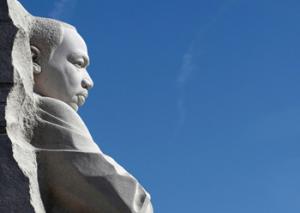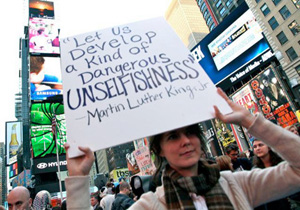
As we pause to commemorate the work of Martin Luther King, Jr., I am sure he would be the first to acknowledge that it remains unfinished.
If King were among us, he would no doubt be flattered and appreciative of all the celebration and commemoration of his life's work that have already begun as we approach the holiday set aside in his honor.
But, chances are, he would much prefer that we live his legacy as we go about our daily lives. That we pick up where he left off to help make the lives of the disenfranchised better, be they black or white, rich or poor, city dweller or farmer, young or old.
Improving the plight of humanity is what it is all about. And there is still a lot to be done.
Many of the issues and concerns King lived and died for are still in need of our attention and energy. Look around you. There are many examples where there is slippage and regression in the areas of race relations, religious tolerance, social justice, equal educational and economic opportunities – not only in the nation and the world, but right in our own communities.
Almost daily, we get blatant and ugly reminders: incidents of discrimination in the marketplace, an ethnic slur here, a derogatory remark there. Stereotypical images, too often, color and dictate how we perceive or relate to a stranger, where we sit, where we go to eat, where we take in a movie.

Too often, the reminders get a little worse. Someone is beaten or killed because of their skin color, because of their apparent or blatant sexual orientation, their religious beliefs. And then there are the less obvious crimes on humanity that are with us every day through some form or the other – disenfranchisement born of economic disparity and greed, the healthy and not-so healthy, the educated and the uneducated.
Someone is denied a job, a home, a loan, a seat in a classroom.
Would Dr. King want us to be addressing many of these issues – honoring his legacy by creating legacies of our own?
Now is a good time to ask what has changed significantly (for better or worse) over the last 10 years, 20, 30, 40, 50 years? It warrants a critical and honest assessment. Regardless of what major changes have occurred, or failed to occur, we need to ask, "Why or Why not?"
Perhaps the most important question one could ask is: "What role have I played in the change, stagnation, retrogression?"
Too often, we convince ourselves that we, as an individual cannot have an impact or make a difference. But imagine if everyone – if King – thought that way. Where would society be? What would be the state of our neighborhood, our nation, the world? Individual effort can and do impact the state and quality of life whether on a small or large scale.
The work of Martin Luther King, Jr. remains unfinished.
Just look around.
